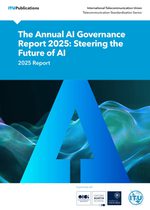Ranger, Nicola, Jasper Verschuur, Roosa Lambin, Mathias Weidinger, Gregory Briffa, and Juan Sabuco. 2025. Towards UK Systemic Resilience to International Cascading Climate Risks: The Role of Infrastructure and Supply Chains. Environmental Change Institute, University of Oxford.
View ReportThe UK’s security and prosperity depend on complex global supply chains – food, critical minerals, and manufactured goods – and benefit from stable macroeconomic and geopolitical conditions. However, climate change, biodiversity loss, and environmental degradation are rapidly reshaping global risks. This report focuses on how infrastructure and supply chains contribute to global systemic climate risks, and how investing in resilient infrastructure and natural capital can mitigate these impacts. The transport and supply of key goods rely on both physical infrastructure (ports, roads, electricity) and natural capital (ecosystems, green infrastructure). Global development and all 17 Sustainable Development Goals (SDGs) are directly or indirectly linked to infrastructure – 72% of SDG targets depend on it. Yet, this infrastructure is highly vulnerable to climate change and risks of disruption, leaving financial institutions, including insurers and investors, increasingly exposed.
The research has two objectives:
1. Build evidence for how investment in resilient infrastructure and natural capital in emerging markets and developing economies (EMDEs) can enhance the UK’s systemic resilience.
2. Strengthen understanding of how UK foreign policy and development finance can help close the resilience gap in EMDE infrastructure.
This report was supported by the Foreign, Commonwealth and Development Office (FCDO) and prepared under the Oxford Martin Systemic Resilience Initiative.
KEY FINDINGS:
Without intervention, rising infrastructure and trade-related risks may undermine UK systemic resilience. This report assesses growing risks to supply chains (especially food, fuel, critical minerals), and infrastructure systems (ports, roads, rail) and natural capital.
· Trade Disruption: Over $60 billion of trade is at risk annually from climate shocks, concentrated in East Asian ports vulnerable to cyclones and downtime.
· Natural Capital: Loss of ecosystems amplifies climate risks, potentially causing trillions of dollars in losses from water stress, soil degradation, and pollution.
FOUR CASE STUDIES:
1. Ports: UK supply chains are exposed to port disruptions. Climate-related financial losses to UK trade from port interruptions are estimated at $2.5 billion annually, with major risk areas in the USA, South Korea, and East/Southeast Asia.
2. Food: UK grain prices can fluctuate 10–15% from weather variability alone, but combined
shocks can trigger more volatility. Though the UK has some resilience through diversified sourcing, it remains vulnerable to global breadbasket failures.
3. Natural Capital: Nature-related risks are financially significant. Half of these relate to international supply chains. A major natural capital shock could reduce UK GDP by at least 6% below trend growth within the decade.
4. Energy – Green Ammonia: Green ammonia may offer long-term resilience for UK energy, especially by 2035 with high renewable energy penetration. Its sources are globally distributed, mainly in Africa, where investment environments remain challenging. Policymakers must consider how to secure these future supply chains.
NEW AND EMERGING RISKS:
These risks are evolving and differ from historical patterns, bringing new management challenges:
· Abrupt Shifts: Ecosystem tipping points could cause sudden, severe global supply chain impacts.
· Changing Dependencies: As the UK shifts away from fossil fuels, new dependencies emerge – e.g. critical minerals and green ammonia from fragile states.
· Complex Interdependence: Greater economic connectivity increases exposure to cascading risks.
· Highly Correlated Shocks: Climate and nature-related risks could hit multiple sectors and countries simultaneously, disrupting the global economy.
· ‘Polycrises’: Increasing risk of simultaneous crises potentially leading to compounding and more severe impacts.
Managing transnational climate risks (TCRs) requires action at all levels. This report provides a preliminary review of UK policy and implications across five areas: finance and investment; data; trade and supply chains; regulation; and global governance.
The report provides key recommendation for finance and investment, arguing that investing in resilient infrastructure and natural capital globally offers clear benefits for the UK and developing countries alike, and should be focused on improving local development outcomes and ensuring globally resilient systems for food, energy, transport, and nature. The current underinvestment presents significant risks – not just to vulnerable nations, but to the UK’s economic security and systemic resilience.





